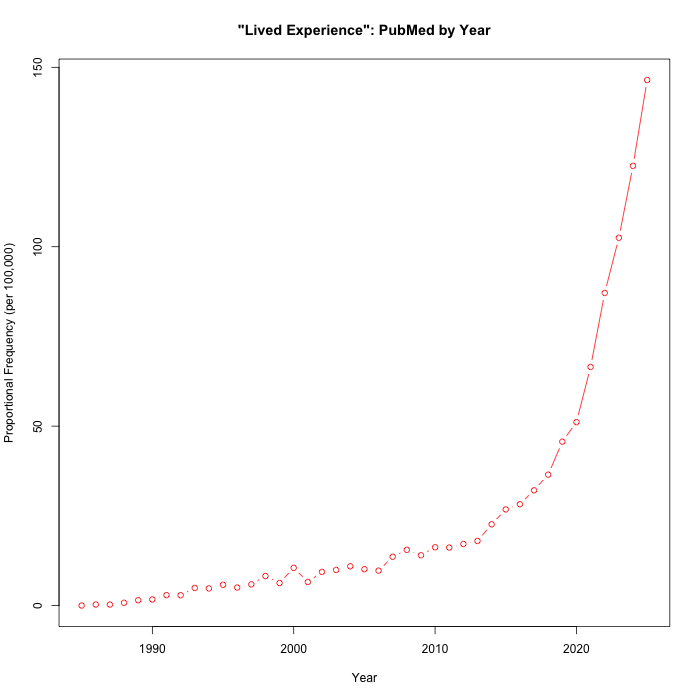Lived Experience
A PubMed search for the phrase "lived experience" finds 11,139 papers within the past year. And an esperr search shows that the relative frequency of this phrase has been increasing rapidly on PubMed:

It's not just in the fields covered by PubMed — the Social Science Research Network finds the phrase in 1,376 papers within the past year, including titles like "Distant Writing: Literary Production in the Age of Artificial Intelligence", "Civil V. Common Law: The Emperor Has No Clothes", and "The implementation of senior high school in the Philippines: An advantage of disadvantage to students' future opportunities".
Read the rest of this entry »
